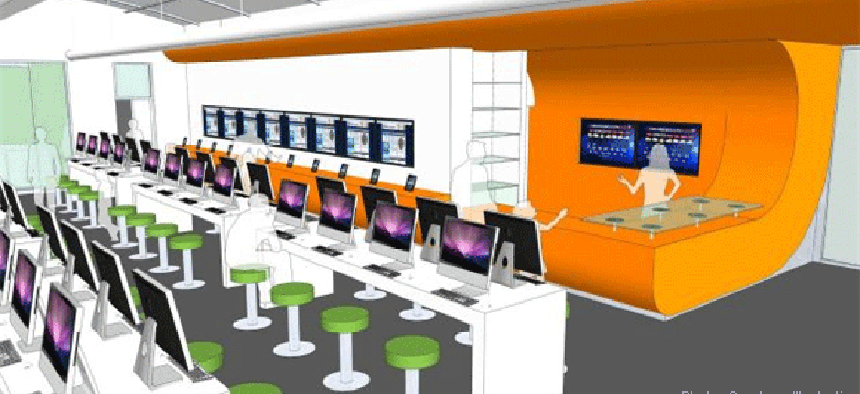Bookless library foreshadows next-gen students, learning technologies


Connecting state and local government leaders
A Texas county's plans for a bookless library underscores the point that research, training and teaching methods must be redesigned for new technologies or learners will disconnect.
Bexar County, Texas, caused a stir among librarians recently when it announced it would launch a bookless library branch this fall. The project, called BiblioTech, would offer about 10,000 titles that patrons could check-out and access remotely via e-readers and mobile devices, as well as about 100 tablets, laptops and desktop computers that will be made available inside the branch. Technical help with computers would be offered to patrons, but reference assistance would be cut.
The plan represents an attempt by the county to provide traditional public library services in a low-cost, digitally accessible and commercially inviting style. And that’s no accident: “If you want to get an idea what it looks like, go into an Apple store,” Bexar County Judge Nelson Wolff told the San Antonio Express-News. Except that Apple stores don’t serve café lattes. BiblioTech would.
Will it fly? It could. However the public feels about the new mix of services, the business proposition is hard to beat: access to the latest books and videos at no (retail) charge.
But there are some caveats. Over the long run, simply offering digital or mobile access to its collection is a pretty old technology model. It’s the equivalent of giving the public one-way access to public documents over the Internet, a staple of e-government for nearly 20 years. To maintain a healthy level of patronage, libraries, like schools, will have to keep up with the latest media formats, including social media, intelligent browsing and educational gaming.
And doing away with human reference assistance, while a cost-saver, might be a mistake, taking the library a step further from being a center of both research and learning and a step closer to being just a publicly funded Internet café.
Even so, Bexar County should be credited for having the civic wherewithal to bet on a new model for public libraries, a battle for relevance that other agencies with educational and training missions must also confront.
Today military recruits, for example, and their contemporaries are digital natives whose learning habits are heavily influenced by multi-channel social media sessions, texting formats and hyper-definition video “worlds.” The usual method for research, learning and training must be constantly reinvented as these new technologies emerge.
And over the long run, success in doing so might mean the difference in whether courseware catches fire with learners and projects like BiblioTech become next-generation libraries or just a nice place for a cup of coffee and texting with friends.
NEXT STORY: The state of the union for 3D printing is strong




